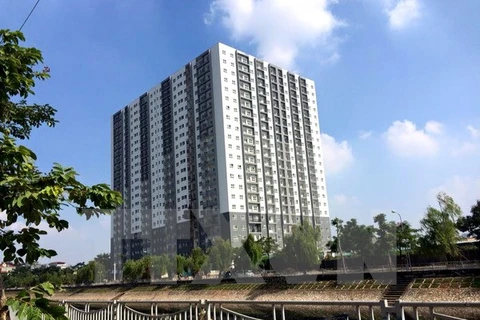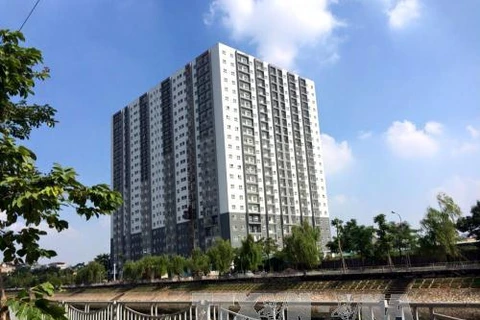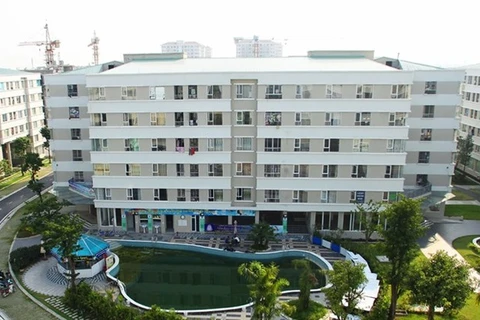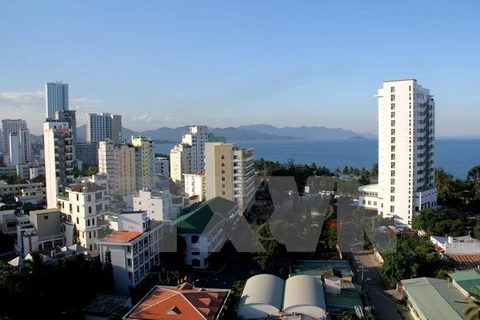 Last year, the nation’s average floor area per person rose 0.6 square metre to 23.4 square metres as compared to 2016 (Illustrative image. Source: VNA)
Last year, the nation’s average floor area per person rose 0.6 square metre to 23.4 square metres as compared to 2016 (Illustrative image. Source: VNA) Hanoi (VNA) – The legal corridor for social housing development has recently changed towards providing more incentives than it was first mentioned in the Housing Law in 2005.
Last year, the nation’s average floor area per person rose 0.6 square metre to 23.4 square metres as compared to 2016.
In 2017, a further 0.19 million square metres of social housing was added in urban areas, raising the total area for social housing in the urban region to 3.49 million square metres.
According to Minister of Construction Pham Hong Ha, the country now has more than 4 million square metres of social housing but only 40 percent of public demand has been met.
The Housing Law in 2014 and the government’s Decree No.100/2015/ND-CP have provided full regulations and policies on the development and management of social housing, he said.
However, due to economic difficulties and limited State budget for development investment, the allocation of capital for implementing social housing support policies has not yet met the large demand of low-income people.
In the medium-term public investment plan for the 2016-2020 period, the government could arrange only a small amount of 1.2 trillion VND for the field.
Experts said it is necessary to create long-term capital sources for the development of social housing projects.
Preferential credit packages are needed to help enterprises investing in the field and people buying social housing properties.
Nguyen Ngoc Thanh, Vice Chairman of the Vietnam Real Estate Association, said the 30-trillion VND (1.32 billion USD) housing aid package, which was launched in 2013 and ended in 2016, created a breakthrough in the field, but it was just an aid package, not credit policy.
The government’s Decree 100 states clearly that the capital to implement social housing projects is sourced from preferential credits from the Vietnam Bank for Social Policies, he said.
The State Bank of Vietnam (SBV) has decided to keep preferential loan interest rate unchanged at 5 percent for purchase, rent or hire of social housing projects in 2018.
The decision took effect from the beginning of this year, replacing Decision No 2544/QD-NHNN, dated December 30, 2016, on interest rate for loans applicable in 2017 for social housing projects.-VNA
VNA
























